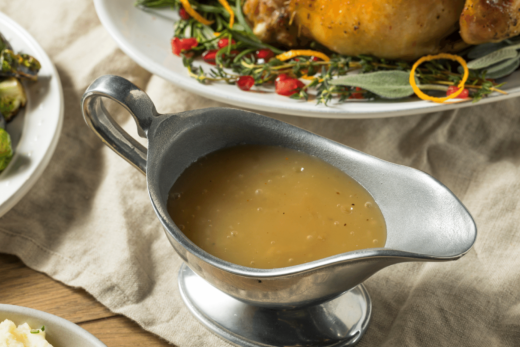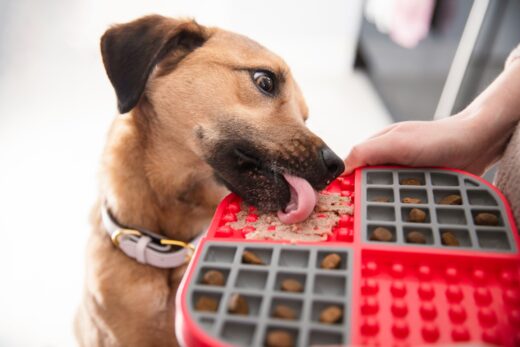Unconditional love. Unquestionable loyalty. Cuddles on demand. There are an infinite number of reasons to love your dog, but real love is never easy. Oftentimes we have to take the good with the bad. For all the things they give us to love about them, there are just as many things that make us scratch our heads, hold our noses, and sometimes even gag.
Our sweet pups don’t try to gross us out on purpose. Many of the things that make us say “ew” aren’t even their fault! A lot of our dogs’ unfortunate habits and symptoms can be directly traced back to the bag, box, or can of dog food that you have in your kitchen right now. Dog nutrition plays a key role in every function of the dog’s body.
If your dog is guilty of any of these super-gross habits, consider whether the real culprit might be their diet. The root of a healthy dog’s lifestyle is their essential nutrients, nutritious food, and vitamins and minerals.

In addition to inadequate nutrition, many of these issues may be signs of larger problems, so make sure you consult your veterinarian if you see any of these issues persist.
What Goes Into a Nutritional, Balanced Dog Food?
A complete and balanced diet includes proteins, fats, carbohydrates, vitamins, and minerals. Water is also essential to life and is needed daily. This may seem very simple and easy with the basic ingredients broken down, but understanding how each nutrient is used in a dog’s body, understanding the processes, and knowing how much of each nutrient is needed for a healthy dog at all life stages is very complex.
A large portion of energy in the diet comes from fats and proteins, followed by carbohydrates. The energy content of a diet determines the quality of the food and how much food should be consumed on a daily basis. The diet should meet the daily energy requirements of your dog’s individual needs.
In fact, this process is so complex that an entire specialty in veterinary medicine is dedicated to small animal nutrition—the American College of Veterinary Nutrition. But as a pet parent, the main things you need to know about dog food nutrition are:
Nutrition Requirements
There are technically six essential nutrients that are required in order to support life and function in dogs. These are:
- Water
- Carbohydrates (including fiber)
- Vitamins
- Minerals
- Fat and essential fatty acids
- Protein
Symptoms of Dogs Eating the Wrong Foods
1. Gas
Dog flatulence is notoriously toxic. Whereas our human loved ones might have the tact to walk away before they pass gas, our dogs have no problem blowing a stinky toot right next to us on the couch. You may have accepted by now that your TV buddy has frequent bubble guts, but imagine a world in which you can finish a show after dinner without sitting in a cloud of dog gas. One where you don’t have to hit pause so you can let the room air out.
Your dog may not complain much, but we all know how painful and uncomfortable a gassy belly can be. Gas is a symptom of several issues, but stomach upset caused by dog food is a common reason many pet parents miss.
Not all dog foods are created equal, so they won’t all be a good match for your pup, even if there’s a similar breed pictured on the packaging. Canned food and other commercial pet foods can cause your dog to have many sensitivities. On the other hand, their food may contain common belly-bubbling ingredients you may not know about.
Switching out the contents of your dog’s bowl may help cut your dog’s frequent farting – and help you breathe much, much easier. A fresh, all natural food is one way to ensure your dog is getting exactly the nutrients and ingredients they need, and not those gas-inducing additives.
2. Diarrhea
Feces are unpleasant in all shapes and forms, but nothing is worse than the dreaded poo-puddle when it comes to your dog’s time to go out. Diarrhea is (almost) impossible to pick up at the park, extremely smelly, and also painful for your pup. You’ve likely seen them continue to squat after they’ve already gone without anything even coming out. This is because they still feel like they need to go even though they already have. Humans experience a similar sensation. It’s definitely not a good feeling. Furthermore, diarrhea can cause dehydration if your dog isn’t replacing the water they’re losing, and that can cause many other problems for your poor pooch.
A dog can even lose weight and not get enough nutrients from having diarrhea too frequently. A high quality diet will prevent these ailments, giving your canine supplements they need, keeping a healthy body weight, and avoiding weight loss and nutrient deficiency.
Diarrhea is just one more issue that might be traced back to the box, bag, or can you have in your pantry. Or it could be a one-time occurrence from eating food from something they weren’t supposed to. If your dog is continuing to suffer from diarrhea frequently, talk to your vet and express any concerns you may have about the food they’ve been eating. Most dogs get diarrhea from time to time, but it could also be related to health conditions and health issues.





